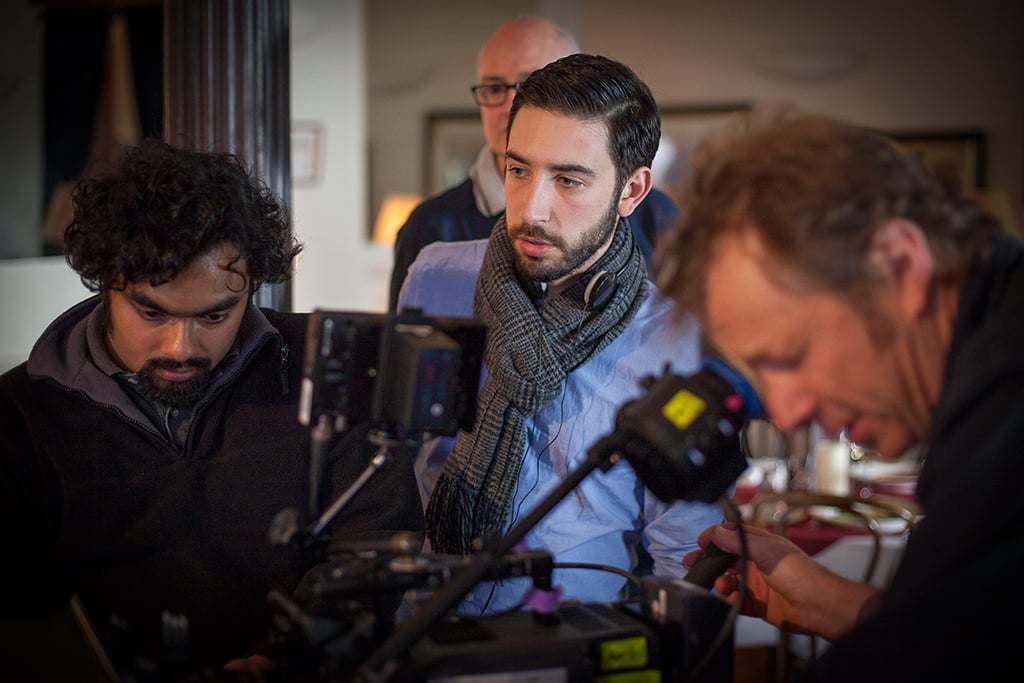Passion Projects vs Paying The Bills: Five Tips On How To Strike The Perfect Balance
Filmmaker Joel Kohn has some hot advice straight off the set of Saddle Club.


Brought to you by HP
We’re partnering with the HP Future Filmmakers competition to take a look at the winners and their stories, and topics that matter to aspiring filmmakers and movie fans.
–
It’s a problem every filmmaker, writer, artist, musician or other creative type knows well — the gigs that pay well are not always the ones you really want to be doing. For HP Future Filmmakers finalist Joel Kohn — who’s done everything from making ads for The Age, working on Robert DeNiro thriller The Killer Elite to directing The Saddle Club — striking the balance between passion projects and the ones that pay the bills has been a work in progress. Thankfully, he seems to be pretty good at it so we asked for some advice.

–
#1: Faking It Till You Make It Is Totally Fine
“I got lucky,” Joel tells us. “I was 19 and I produced a film that got into Tropfest. Then I started working in a production company and during that first year I went and did a director’s attachment with Anthony Minghella [The English Patient, The Talented Mr. Ripley] in Romania … I’d been spoiled a little bit.”
“But in actuality, my experience was limited so I was kind of bullshitting my way through, as you do. Because a lot of this stuff is hands-on, you’ve gotta get hands-on experience. You learn by doing and you learn by making mistakes … Eventually I was like ‘Oh I think I understand this a bit more’ and ‘Oh I’m starting to understand story structure more’ or whatever it is.”
–
#2: Hone Your Skills While Making Money
Aside from his work in film and TV, Joel’s also created commercial content for companies like Fairfax and Holden. While it does pay the bills, he says this isn’t the only reason to dabble in the corporate world; commercials don’t have to be that different to pet projects when your practice is the same.
“The truth is no matter what you’re doing if you’re shooting that is all experience, even if it’s just experience about managing clients and personalities and that sort of stuff,” he says. “I’m not putting any less into those jobs than I would be into the jobs that are my babies so to speak … If I’m being paid to do something I’m putting all my energy into it.”
It helps that this is also a pretty exciting moment to be doing this sort of work. “What’s really good at the moment is that you’ve got commercials but you’ve also got branded content which can be a slightly more creative version of a commercial … there’s also branded web series, and that I think lends itself more nicely into the sort of storytelling narrative stuff that I want to do.”
–
#3: Be Part Of Something Bigger
Though many people wouldn’t think of it as an opportune creative outlet, Saddle Club was Joel’s first experience in TV, and it allowed him to work as a director on a major broadcast production. “It’s expensive to do a lot of television and it’s hard as a young filmmaker who doesn’t have a track record making television to get a show up,” he says. “Really, it’s about finding the right project to collaborate on.”
Now, Joel’s using his experiences with shows like The Saddle Club and ABC’s Prank Patrol while pitching shows he has developed himself. Proving yourself on huge projects like these is a great way to gain skills that you can apply throughout your career.
–
#4: See Gaps And Fill Them
A lot of Joel’s work in TV has been in kids programming, and it’s not just because he loves the hours. Starting out as a young director, Joel saw a gap in the Australian market for children’s TV and films that don’t speak down to young viewers.
“The problem with a lot of TV written for kids is that it’s written by old people,” he says. Often, this can mean that people who are 15 end up talking like 12-year-olds or playing roles that don’t ring true for the actors playing them. It also means that shows made for 15-year-olds are often being watched by kids much younger, because that’s who they ring true for.
Joel was in his early twenties when he started to work on these kind of things, and it was this disconnect that attracted him to the genre in the first place. It’s the same pull that’s seen him move towards genre programs with elements of sci-fi or fantasy — they’re all things Australian broadcasters are still having trouble with.
–
#5: Don’t Be Scared To Set Something Aside
Sometimes taking a break from a project you’re really passionate about to work on one that pays the bills can pay off in other ways too. “Even when you’re not working on it, you’re working on it,” Joel says. “It’s still subconsciously processing and going.”
“It sometimes helps anyway, creatively, if you leave something to do a paying job for a little bit. You can get too close to it … I find that sometimes putting your mind in another creative area, even if it’s a corporate job or whatever, actually helps you to be subconsciously developing the other idea.”
Eventually those “other ideas” get finished, and they look a little something like this:
–
Vote in HP’s Future Filmmakers competition, to help your favourite filmmaker win a cash grant — and come up with taglines for the finalists’ films in the #HPTagIt competition, and you could score great prizes too, including a $5,000 Flight Centre voucher. Head here to get involved (and for T&Cs).
–
Jess O’Callaghan is a co-Executive Producer of All The Best, and the producer of the Re-Readers podcast. Previously her writing and radio has appeared on the Meanjin podcast, Right Now, Something You Said, AWOL and Farrago.